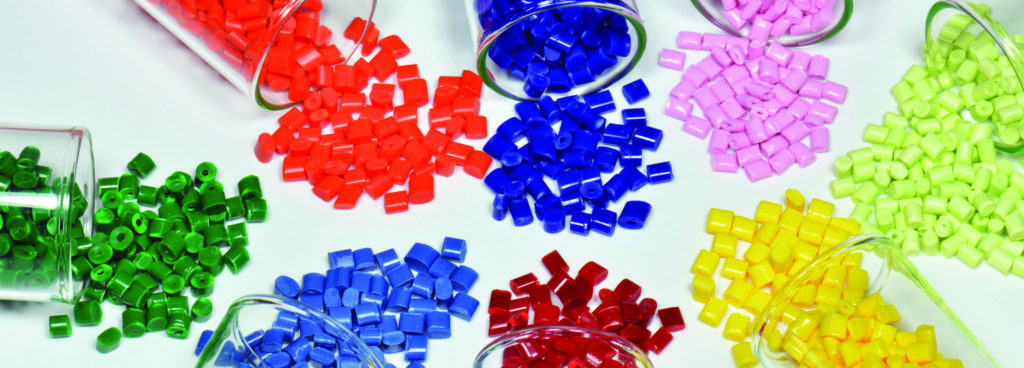PLASTIC & POLYMER TESTING:
 There are a variety of methods for identifying plastics and polymers, including visual inspection,
density measurement, melting point determination, and spectroscopic analysis (such as infrared
spectroscopy). It is important to note that no single test can provide a definitive identification of a
plastic or polymer and a combination of methods is often used.
There are a variety of methods for identifying plastics and polymers, including visual inspection,
density measurement, melting point determination, and spectroscopic analysis (such as infrared
spectroscopy). It is important to note that no single test can provide a definitive identification of a
plastic or polymer and a combination of methods is often used.
There are several testing protocols that are commonly used to evaluate the properties of plastics and polymers, including:
- Tensile testing: This involves applying a pulling force to a sample of the material and measuring its response in terms of stress and strain. This can help to determine the material's strength, modulus of elasticity, and elongation at break.
- Impact testing: This involves striking a sample of the material with a weight or pendulum and measuring its resistance to breaking or deformation. This can help to determine the material's toughness and ductility.
- Hardness testing: This involves measuring the resistance of a material to indentation, typically using a Rockwell or Brinell hardness tester. This can help to determine the material's resistance to deformation or scratching.
- Fatigue testing: This involves applying cyclic loads to a sample of the material and measuring its response in terms of how many cycles it can withstand before failing. This can help to determine the material's resistance to wear and tear over time.
- Environmental testing: This involves exposing a sample of the material to different environmental conditions, such as heat, cold, humidity, and UV radiation, and measuring its response in terms of how it changes over time. This can help to determine the material's resistance to environmental factors.
- Flammability testing: This involves exposing a sample of the material to a flame and measuring its response in terms of how it burns and how much heat and smoke it produces. This can help to determine the material's flammability characteristics.
- Chemical resistance testing: This involves exposing a sample of the material to different chemicals and measuring its response in terms of how it reacts or deforms. This can help to determine the material's resistance to chemical exposure.
- Microscopy testing : This involves using a microscope to examine the surface or internal structure of the material. This can help to determine the material's properties such as porosity, crystalline structure and degree of crystallinity.
Polymer testing services offered by a lab may include:
 Physical testing such as tensile strength, elongation, modulus, impact resistance, and hardness
Chemical testing such as composition analysis, melt flow index, and thermal properties (e.g. melting
point, glass transition temperature) Environmental testing such as weathering, UV stability, and
flammability Quality control and characterization testing Non-destructive testing such as ultrasonic,
X-ray, and microscopy. Custom testing based on specific customer requirements
It is important to note that not all labs will offer the same range of services and the availability of
certain tests may depend on the lab's equipment and expertise.
Physical testing such as tensile strength, elongation, modulus, impact resistance, and hardness
Chemical testing such as composition analysis, melt flow index, and thermal properties (e.g. melting
point, glass transition temperature) Environmental testing such as weathering, UV stability, and
flammability Quality control and characterization testing Non-destructive testing such as ultrasonic,
X-ray, and microscopy. Custom testing based on specific customer requirements
It is important to note that not all labs will offer the same range of services and the availability of
certain tests may depend on the lab's equipment and expertise.
PLASTICS There are several testing protocols for plastics, including:
- Tensile testing: This test measures the strength and flexibility of a plastic material by applying a force to it until it breaks.
- Impact testing: This test measures a plastic's resistance to impact by dropping a weight onto it or striking it with a pendulum.
- Hardness testing: This test measures a plastic's resistance to indentation by pressing a pointed or rounded object into the surface of the material.
- Fatigue testing: This test measures a plastic's ability to withstand repeated stress and deformation.
- Temperature testing: This test measures a plastic's ability to withstand extreme temperatures by exposing it to high or low temperatures for a specific period of time.
- Flammability testing: This test measures a plastic's ability to resist burning or catching fire.
- Weatherability testing: This test measures a plastic's ability to withstand exposure to the elements, such as sunlight, humidity, and temperature changes.
- Chemical resistance testing: This test measures a plastic's ability to withstand exposure to various chemicals.
These are some of the common tests that are used to evaluate the performance of plastics. The specific tests used will depend on the intended application of the plastic and the requirements of the end user.


Testing
Read More
Inspection
Read More
Certification
Read MoreTesting Services
- Drugs & Pharmaceutical Testing
- Cosmetics & Essential Oils Testing
- Medical Devices Testing
- Ayush - Ayurvedic Drug Testing
- Food Products Testing
- Agri Commodities Testing
- Fertilizers and Soil Testing
- Animal Food & Feed Testing
- Water - Drinking Water & Effluent Water Testing
- Industrial Oils and Lubricants & Petroleum Products Testing
- Coal & Coke and Solid Fuels Testing
- Ores & Minerals Testing
- Metals & Alloys Testing
- Plastics, Polymer, Rubber & Rubber Products Testing
- Resins & Adhesives Testing
- Paints, Varnish, Pigments & Surface Coating Testing
- Glass & Ink, Paper & Pulp Testing
- Industrial & Fine Chemicals Testing
- Dyes, Acids and Solvents Testing
- Soaps, Detergents & Toiletries Testing
- Packaging & Packaging Products Testing
- Gold & Silver Assaying & Hallmarking
- Cement, Concrete & Building Materials Testing
- Pollution and Environmental Studies
- Microbiological Assays. Etc.,









